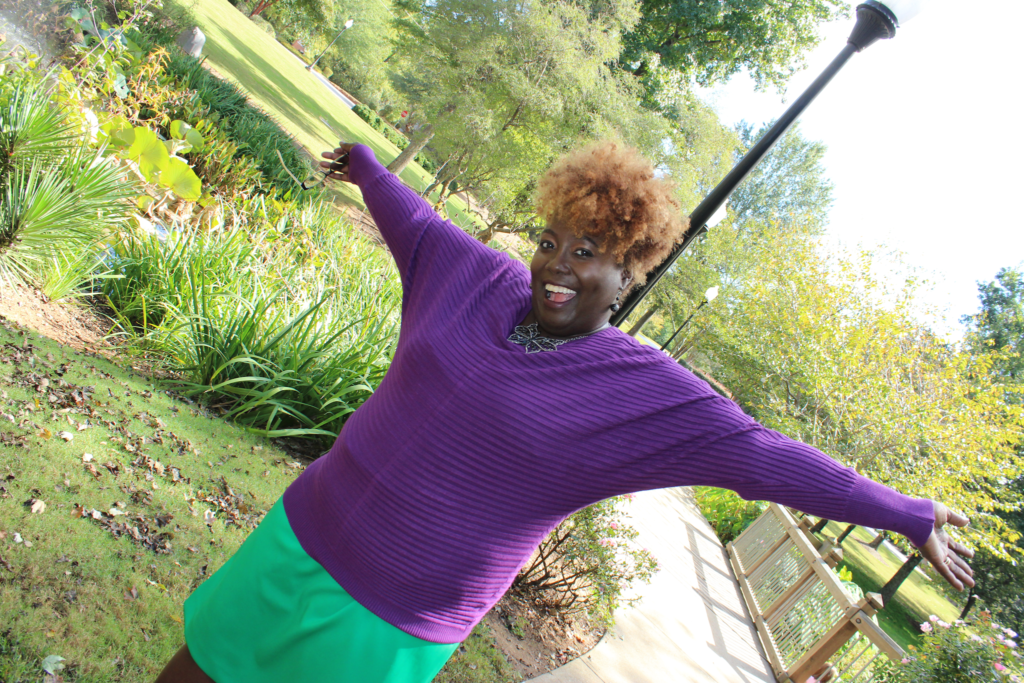Throughout May, we’ve been sharing stories from Friends in the Fight who are living with the conditions fighting fr awareness this month. Here area few stories in honor of Lupus Awareness Month
Erica Lupinacci
How does Lupus affect your life?
Lupus truly affects all aspects of my life. Physically, my symptoms include chronic chest pain & pressure (due to chronic pericarditis, inflammation of the sac surrounding the heart), chronic migraines, joint pain, muscle pain, fatigue, weakness, hair loss, stomach spasms & bloating, and malar rash. I experience one or multiple symptoms daily. In the past year and a half since I developed chronic pericarditis, my pain keeps me from working as much as I want to, socializing, and even running a simple errand. There are times that going into my kitchen to get a glass of water feels too difficult.
Lupus affects my mental health, my relationships, and then little things like the clothes I buy. My medication causes me to gain weight in odd places so I have a hard time finding clothes that fit me properly. There’s not much I can control with this disease so I try to take really good care of myself and even then, the disease has a mind of its own!
What are some ways you’ve overcome it?
I don’t remember what it’s like to not be sick. I started experiencing symptoms when I was 15 years old and was officially diagnosed when I turned 18. For me, accepting it as a major part of me and my life has been incredibly helpful for my emotional experience. I am the person I am because of lupus, it has forced me to see the world in a different way. I’ve learned to not compare myself to others because realistically, I can’t go about my life in the “traditional” way and that’s okay. I’ve learned to ask for help and advocate for myself even when I’m embarrassed to. Even if it’s just asking my girlfriend to help carry the laundry that day. If the people in my life don’t know when I’m struggling, how can I expect them to support me? It’s also helped me to identify what’s really important to me – whether that’s certain relationships, my passions and career goals, or a specific social event. I only have limited energy and I work really hard to use it on the people and things that really matter to me. I’m really proud of the person I’ve become and so much of it is because I’ve had to learn to navigate life with this disease.
What you want people to understand about living with Lupus?
It can change at any moment of any day. I can feel amazing one minute and like I need to go to the hospital the next. It can be confusing to others who don’t experience these conditions, especially when I “look fine” so much of the time. So when I have to cancel last minute or am unable to plan far in advance, it’s because I never know how I’m going to feel. It’s heartbreaking to have to say no to things all the time. I am trying so hard, every day, to just make it through what I NEED to do that day. And sometimes I can’t even do that. It can be exhausting, it can be frustrating, it can be devastating. For me, I just want people to listen and acknowledge that I’m trying my best.
Alyssa MacKenzie

How does Lupus affect your life?
I was born with several genetic and metabolic abnormalities that have manifested in a variety of debilitating manners, which may or may not include (but certainly compounds) a complicated-to-treat form of Systemic Lupus Erythematosus. SLE is a widespread autoimmune and inflammatory disease that affects nearly every system and organ in my body, and triggers a whole host of other disorders and diseases both autoimmune and idiopathic in nature.
A treatment that is both safe and effective is difficult to curate for any lupus patient as there is no cure for this devastating disease that affects at least 5 million people worldwide, but because of my mitochondrial defects, mast cell activation disorder (MCAS or MCAD), GI issues such as Median Arcuate Ligament Syndrome (MALS), and multiple forms of Dysautonomia, finding medications that decrease disease activity while regulating my other medical conditions is an incredibly complex and complicated process that is constantly in need of tweaking. It feels a bit like human whack-a–mole, to be honest. The single constant in all of this is the knowledge that I will need to be on medication for the rest of my life. This is my life.
In what ways have you overcome it?
Lupus impacts every aspect of my day – in that sense it is less affecting, and more a part of me that I cannot separate. When I saw the disease as a monster that I was fighting, I became increasingly disconnected from my body and disempowered by a warrior narrative that did not make sense to me, unless I believed that I was losing the battle. The win-loss duality was a defeating one for me, personally. The realization that SLE is the name of what my body is doing to itself – and not a separate entity – has helped me to come to terms with my body, particularly as a sick body. Coming to view my life with illness as a thing my body cannot help but do was hugely impactful for me.
I may not be successful at destroying the disease, but I can support my body, my heart, and my mind. This was a paradigm shift that allowed me to feel empathy for my body – even the pieces that were hurting me. A softer lens that has created space for emotional “healing”. While there has been a lot of pressure lately to learn to love your self and all that it is comprised of, my personal body positivity movement has been one of body acceptance as the goal, with body neutrality a worthy compromise. We are a team, there are good days and bad days, we do not always have to be happy, but even when there are stagnations and regressions we are still here. Is that not grace, resilience? Even when it is painful, and messy? It has allowed me a kindness I never knew before.
There is freedom with this lens. It makes room for the loss you must mourn, however ambiguous and however that experience of mourning shows up for you, in your body. You have the right to feel whatever you feel, however and whenever you feel it, as long as it does not purposefully hurt anyone else.
What do you want people to understand about living with Lupus?
Your entire emotionality is deserving of your time, your energy. You do not need to cut yourself off from any aspect of your feeling. This is not how peace is found. Your reaction to being sick and being in a sick body (no matter what that looks like, and it probably looks different every day— it certainly looks different from person to person) is valid. You – even you who is so sick and feeling so debilitated and in turn undeserving – are valid, worthy, enough. Whatever you do to get through your day is more than sufficient. You have express permission to do whatever you need to do to provide yourself ease, however that manifests for you. Overtime, that intentionality begins to look and feel like acceptance, which in turn shapes autonomy. It does not necessarily get better, I am sorry to say. But you get better at it. And it gets easier.
Hetlena J.H. Johnson
How does Lupus affect your life?
Since my diagnosis, I have traveled emotionally from unbelief to hope, and from hope to contentment. Lupus gives those diagnosed with this perplexed a disease a new path in life. Due to the many different phases a person goes through, your life is never quite the same as it was before a diagnosis. I’ve had to contemplate my career, my personal life and my social life. Your world can be turned upside down, but yet it keeps spinning. When I realized that it kept spinning, I had to learn how to find balance so that it wouldn’t spin out of control.
See Lupus Diagnosis and Self Test
What are some ways you’ve overcome Lupus?
I would say that I have tamed my Lupus mentally. I am still afforded the physical and financial pains that Lupus brings along, but I’ve managed to prevail over the, shall I say, surprises that Lupus brings along. I take time to identify a new symptom and am very strategic about what information I take to my medical appointments. I am always making sure each member of my medical team are up to date on a new medication, a new symptom, or new concern. This is very important as Lupus presents treatment puzzles that every detail possible must be examined. I make sure I take breaks for self-care and reflection.
What would you like others to understand about Lupus?
Lupus is an autoimmune disease in which the body is refusing to follow a guide to living well. The body’s defense system goes haywire and wreaks havoc on the body. Because of this, someone diagnosed or facing a diagnosis of Lupus should always start with journaling. Keep a record of pains, ailments, and all the things that are happening to you. This can be both physical and emotional. Lupus is not a final sentence. A diagnosis does not mean death. It means new life! You may need to learn how to manage your self-care better. You may need to ask for help. Don’t be afraid to ask for help. I like to think of it as A way of Seeking Kindness (A.S.K.). Once you humble yourself to the fact that it’s going to be okay being diagnosed with something different, you open your eyes and see your life more clearly rather than penitently. Lupus is definitely an amusement park. My faith has been what has carried me through this 26 year ride on the Lupus rollercoaster.
Want to get involved?
May is almost over, but there’s still more to be done! Click here to find out how you can help.



